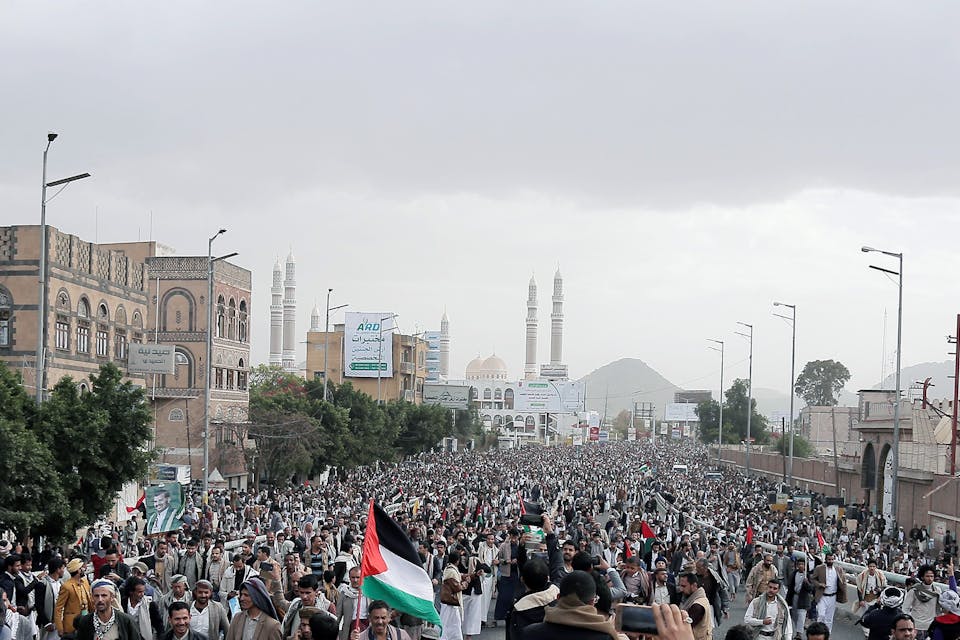
February 22, 2024
The World Is Not Taking the Houthis Seriously Enough
Of all the actors that have taken the world stage since October 7, the Houthis are surely the most surprising. Where did they come from and what do they want?
Of all the actors that have taken the world stage in the months since October 7, the Houthis are surely the most surprising. Formerly an obscure Yemeni militia, they have emerged a highly armed and motivated member of Iran’s Axis of Resistance, putting to shame more famous yet recently more passive partners like Hizballah. Claiming to defend Gaza, the Houthis have effectively halted shipping in the Red Sea, and regularly release videos daring the world to stop them. Many in America, at least, are taking their claims at their word. This is a deep mistake. The Houthis are in fact motivated much more by their own local necessities and regional ambitions than they are by the wellbeing of civilians—or of their Hamas allies—in Gaza. It is therefore far too simplistic to suggest that the Houthis will halt their attacks if Israel and Hamas agree to a ceasefire. The truth of the matter is that, unless countered, their domestic ambitions, coupled with Iran’s broader goals, will make the Houthis a force to be reckoned with in the region irrespective of the Palestinian situation.
To grasp that reality properly, it helps to get a sense of who the Houthis are and how they have gotten here, for they did not simply emerge fully formed in the last year.
The Houthis are a political-religious movement from northern Yemen that began as a 1980s youth movement called the Believing Youth, or al-Shabab al-Mu’minin. Since its founding by Husayn Bader al-Din al-Houthi, a Shiite scholar and activist from the North Yemeni backwater of Saada, the group has re-invented itself numerous times: from a youth movement to a political party known as al-Haqq in the 1990s, from a political party to a guerrilla organization in the early 2000s, and then from a guerrilla organization to a proto-state in the 2010s. During that time, the leadership of the organization was passed from Husayn to his father Bader al-Din al-Houthi after Husayn’s 2004 assassination by the Yemeni military, and then from Bader al-Din to Husayn’s brother Abdelmalik Bader al-Din al-Houthi, who remains in control of the group today. While the group calls itself Ansar Allah, because of this dynastic leadership it is usually referred to by local opponents and the outside world as the Houthis.